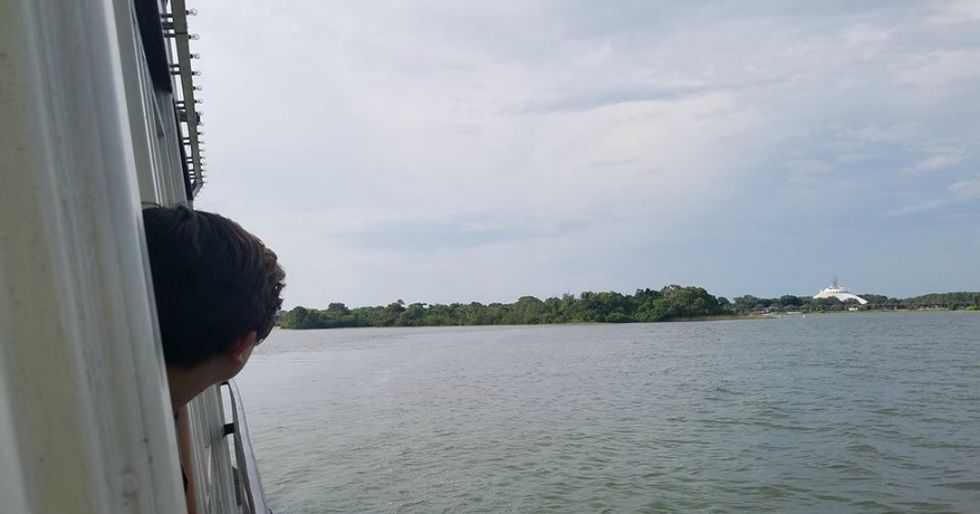Recently, a friend of mine shared an article about anxiety, and there were some things in there that were simply personal in regards to how to handle anxiety.
Now, I understand that everyone deals with anxiety in different ways, but sometimes there are better ways to handle it than others. Everything I am about to say is how I deal with my anxiety attacks when they occur, and hopefully, others can relate and understand why these methods work. This is not an attack, but rather a clarification to help generalize how to handle it.
1. Breathe.
This one is possibly the best one to start with. In my case, and for others I know, breathing is almost impossible when in the midst of an anxiety attack. Your chest gets tight, and focusing on your breathing is not your first priority. Sometimes, personally, burying my face in a chest or pillow actually helps. That act forces me to breathe because I end up suffocating myself. Basically, focus on what needs to be done first. If that means finding a safe place, then go about that. You should at least be comfortable when you have an anxiety attack.
2. Kick everyone out.
Once again, this isn't as easy as it seems. Sometimes your breathing is so labored that speaking is impossible. If it comes to having an anxiety attack, letting yourself out rather than kicking everyone else out is the better option. No one wants to make their mental health into a whole spectacle, so rather than turn it into this big show, quietly excuse yourself out. Maybe the people you are with will pick up on the fact that you can't be with them right now because you need to focus on your mental health and will proceed to leave so you can be in your own room. Sometimes just going to a separate quiet area is just as nice. If they don't pick up on it, it is perfectly fine just to be mad, but remember that not everyone has mental health issues, so it may be harder for them to pick up on it.
3. Really take some time to yourself.
This point is actually very important. Many times, you need to sit down and evaluate what gave you anxiety in the first place, and sometimes having company is not going to help with that. Personally, being alone after an anxiety attack will trigger another one, for absolutely no reason. If you need to take time for yourself to collect your thoughts, that is perfectly fine. It's just not what everyone needs. I'd rather sit in my bed, cuddling and watching a movie to put myself at ease, rather than sitting in my room, staring at a wall until my thoughts are put together.
4. Reach out to your support network.
This one is very partial to the person. If you are not open about your anxiety, then there won't be a large support group for you to reach out to. You can talk to your friends or family, but if they are not aware of the situation, then they have no way of helping you. I understand that not everyone wants to be open about their mental health, especially due to the stigmas that still surround the issue, but having a close support network to reach out to that knows that you are prone to anxiety attacks is very important. That way, if you have one, they can properly handle it, and all will be well. Also, this refers back to the last point, some people do need time to be by themselves. There's no reason to tell everyone every time you have an anxiety attack and what triggered it. Rather, it's better to educate others so that way, if they are around you, they are aware that certain things trigger attacks, and are more mindful not to engage in those actions.
5. Start moving forward.
This one has thrown me for a loop. What does it mean to start moving forward? Does it mean to jump right back into life as soon as your anxiety attack is over? Does it mean to not acknowledge the fact that you just had an anxiety attack? Either way, you should give yourself time to bring your thoughts back down to Earth before you make any rational decisions. Depending on the person, the recovery time is different. It may take one person a few minutes, while it takes another a few hours. Both are valid recovery times, depending on the intensity of the attack. The first step to moving forward is making sure that you are in a safe mental space, then going about your life. Moving forward is taking baby steps. Everything will be okay in time, and it may take a long time, but working towards it slowly will not only avoid strain on your anxiety but leave times for you to truly appreciate and enjoy life.
I think the biggest lesson to be learned is that everyone handles anxiety in their own personal way. No one article is going to give the best advice on how to overcome one's anxiety. What we can learn, however, is to understand each other's mental health and work forward from there. If you are ever experiencing an anxiety attack, do whatever makes you comfortable and at ease. I touched a lot on what works for me, but that might be the opposite of what another person needs. Anxiety is scary, but it's a lot less scary when you are aware of what is happening.
















